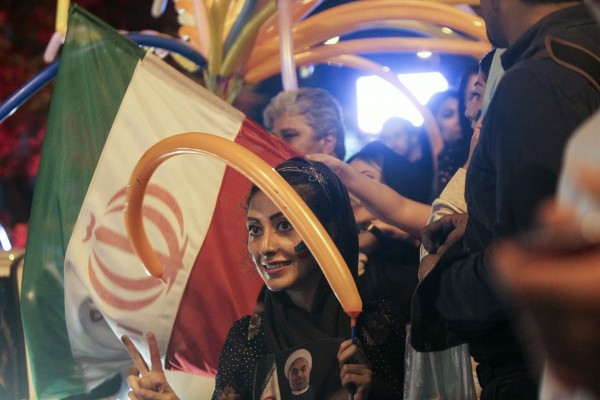

Follow us on:  
|


With economic sanctions removed and its forces increasingly playing a role in neighbouring countries, Iran is enjoying a resurgence of power and influence not seen since the 1970s [Xinhua]
While tensions with North Korea may have somewhat tempered down, the Trump White House is determined to fulfill a campaign promise – amid vociferous demands from the Republican party – to raise the pressure on Iran.
Secretary of State Rex Tillerson appeared to be the latest to take a swipe at the Obama administration foreign policy Wednesday when he described the nuclear deal signed between Iran, the UN Security Council Permanent Members and Germany (P5+1) in June 2015 as a failed approach similar to the one on North Korea.
“The Trump administration has no intention of passing the buck to a future administration on Iran. The evidence is clear: Iran’s provocative actions threaten the United States, the region and the world,” he said.
On Tuesday, the Trump administration informed Congress – as it is required to do every three months – that Iran is complying with the tenets of the 2015 nuclear deal.
But the agreement also holds that decades old sanctions on Iran are to be removed. The end of sanctions is seen as a victory in Tehran: it has boosted its oil production on world energy markets and signed global commercial deals worth billions.
Republicans had previously lambasted the Obama administration for what they said was “rewarding” Iran for its hardline policies, including threats to Israel, in the Middle East.
At the time, Donald Trump echoed their opposition to the nuclear deal when he called it the worst deal ever.
On Wednesday, Tillerson took a hard line on Iran by accusing it of being “a leading state sponsor of terror, through many platforms and methods”.
He affirmed that the Trump administration will review the lifting of sanctions on Iran and whether their absence harms America’s national Security interests.
The response in Iran? Same ‘ol, same ‘ol.
Iran has for years lived with US vitriol and has deftly out maneuvered Washington in the Middle East particularly in Iraq, Syria and Lebanon.
On Thursday, Iranian Foreign Minister Javad Zarif simply reminded the US to fulfill its commitments to the nuclear deal.
A muted reaction to Tillerson’s remarks? But not much more is needed, really.
Iran is crucial to the US campaign to defeat ISIl or Daesh in Iraq.
Its militias have secured blitzkrieg victories in Iraq’s Ramadi and Tikrit on the road to Mosul; its military advisers have significant sway among armed groups in Baghdad; even its air force has bombed ISIL positions in Iraq.
Despite the lamentations of its Arab neighbors, Iran is the dominant force in Iraq and any future project to carve it up or keep its borders secure as is must involve Tehran.
In Syria, thanks to the thousands of volunteers it has dispatched to aid Syrian President Bashar Al Assad, and the heavy use of its Hezbollah proxies, Iran is now part of a negotiations triumvirate involving Russia and Turkey.
It is also now being invited to regional and UN conferences on the Syrian crisis.
in fact, Iran joined Russia earlier this week to warn the US not to launch another air raid against Syrian targets.
Any political dialogue involving the future of Syria will inevitably involve Iran, much to the ire of regional Sunni powers like Saudi Arabia, and to a lesser degree – Jordan.
Both countries have long warned – since the 2003 invasion of Iraq – that a resurgent Iran is a threat to the region.
On Tuesday, Iran held a large military parade in commemoration of National Army Day. On display were advanced missile systems, armored weaponry, fighter jets and other homegrown and imported weapons.
Some of the weapons during the parade included Shah-era US weapons, perhaps an indication that Iran can again play the role of regional cop as it did in the 1970s.
By Firas Al-Atraqchi for The BRICS Post with inputs from Agencies